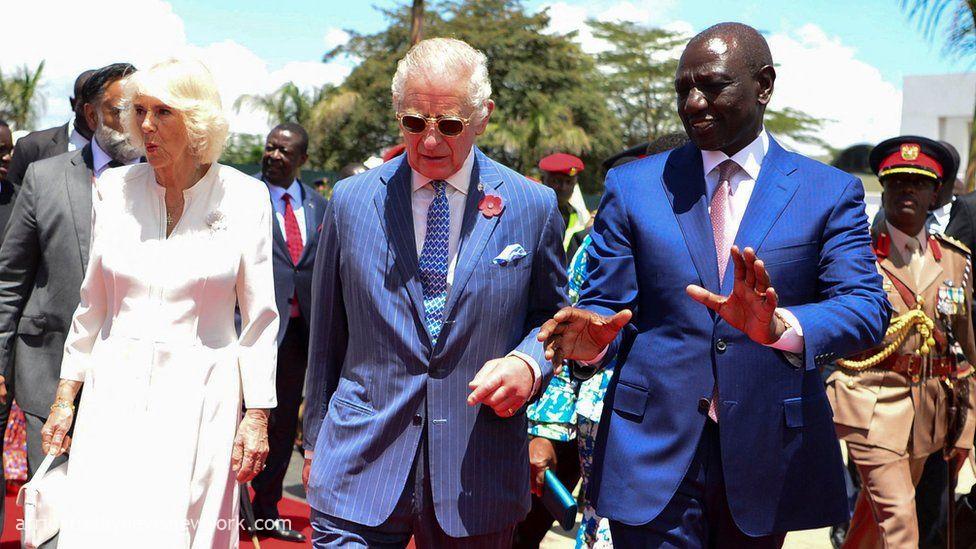The King of England, King Charles III on Tuesday acknowledged the ‘abhorrent and unjustifiable acts of violence committed against Kenyans‘ during their independence struggle.
The Monarch addressed the ‘wrongdoings’ of Britain’s colonial era on his state visit to Kenya.
He told a state banquet in Nairobi of his “greatest sorrow and regret” and that there was ‘no excuse’.
However, the King did not issue a formal apology; it would have to wait until government ministers made that decision.
Kenya’s President William Ruto responded by commending the King’s bravery in confronting such “uncomfortable truths”.
The Kenyan head of state told the King that colonial rule had been “brutal and atrocious to African people” and that “much remains to be done in order to achieve full reparations”.
Ahead of the King’s state visit to Kenya, the first to a Commonwealth country since the start of his reign, there had been speculation about a symbolic royal apology.
But if the King stopped short of an apology, his speech in Kenya’s State House was a significant and strongly-worded recognition of the wrongs committed under colonialism.
As Kenya marks its 60th anniversary of independence, the King told his audience: “It matters greatly to me that I should deepen my own understanding of these wrongs, and that I meet some of those whose lives and communities were so grievously affected.”
Read Also: Apologise For Colonial Abuse, Kenyan Group Urges King Charles
In particular in Kenya there are memories of the suppression of the Mau Mau uprising, in which thousands were killed and tortured in the 1950s before independence.
Africa Today News, New York recalls that a decade ago the UK government voiced its “regrets that these abuses took place” and announced payments of almost £20m to more than 5,000 people, in what it called a “process of reconciliation”.
Monarchs have to speak on the advice of ministers and UK Prime Minister Rishi Sunak has already rejected calls for an apology on the separate issue of slavery.
The lack of an apology on this trip might have disappointed some Kenyans like David Ngasura of the Kenyan Talai clan.
He has written letters to the Royal Family seeking an apology and reparations – and in response Buckingham Palace referred his request to the Foreign, Commonwealth and Development Office.
If there are concerns an apology would be interpreted as an admission of liability and lead to legal claims, the Kenyan survivors of the colonial government’s excesses argue it would help bring healing and closure.
King Charles, who delivered a strong acknowledgement of the “most painful times of our long and complex relationship”, told his audience that the friendship between Britain and Kenya could be strengthened by “addressing our history with honesty and openness”.
On this first day of the state visit, King Charles had a meeting with President Ruto, visited an urban farm and met young Kenyan tech entrepreneurs.
The King also visited a museum dedicated to Kenya’s history and its battle of independence.
The Royal Family, particularly on visits to Commonwealth countries, have increasingly faced questions about the legacies of colonialism and slavery, with calls for apologies and reparations.
